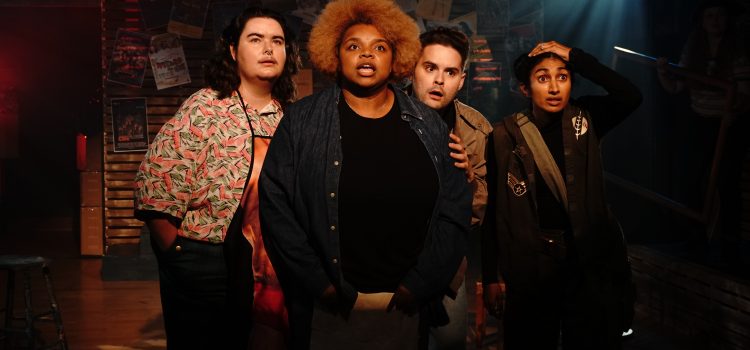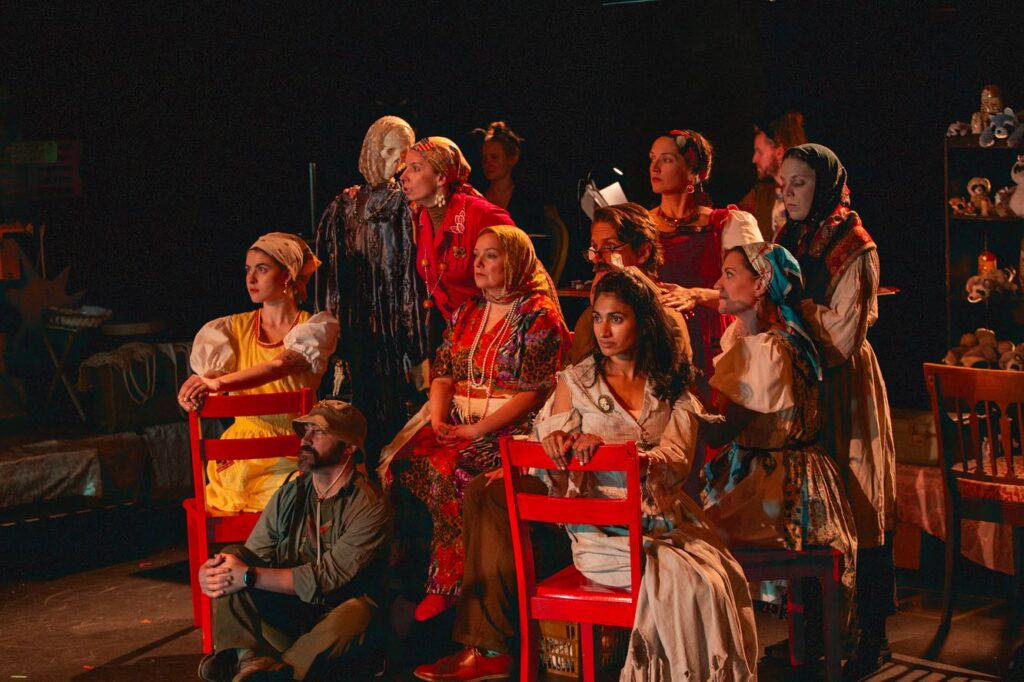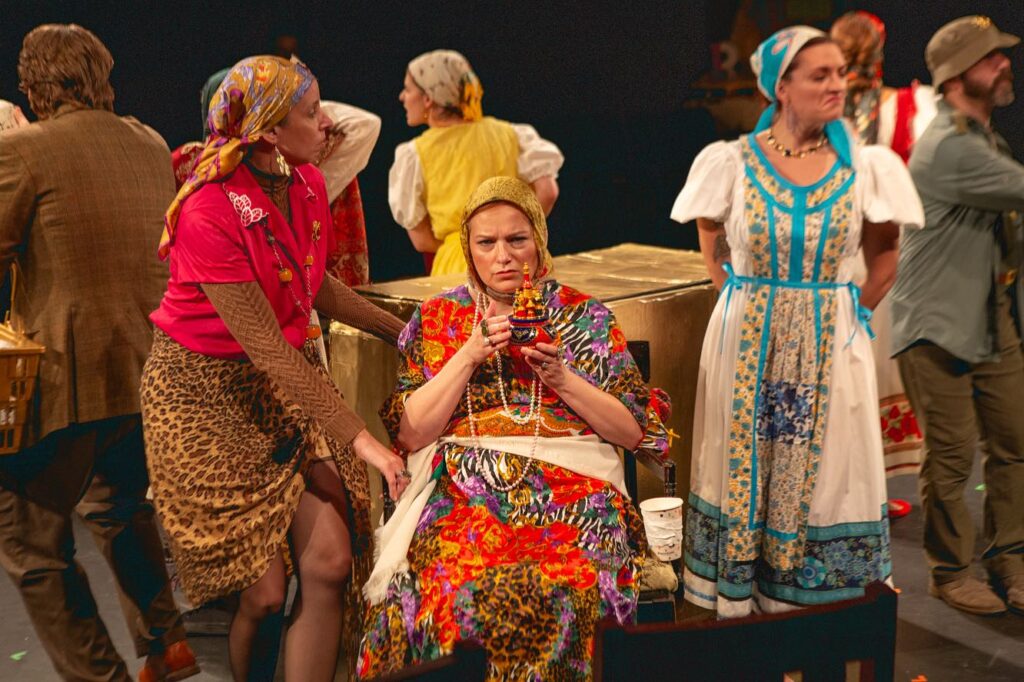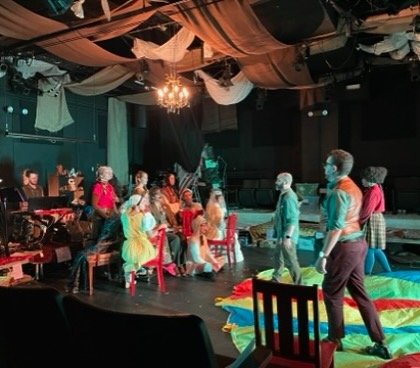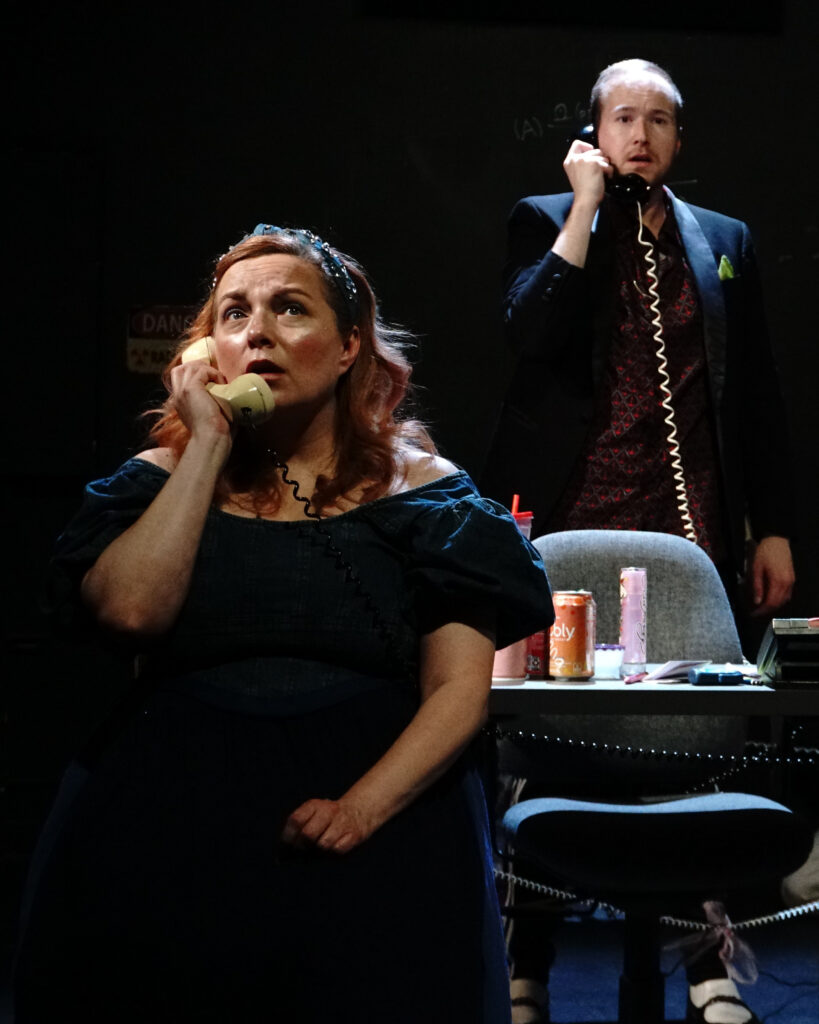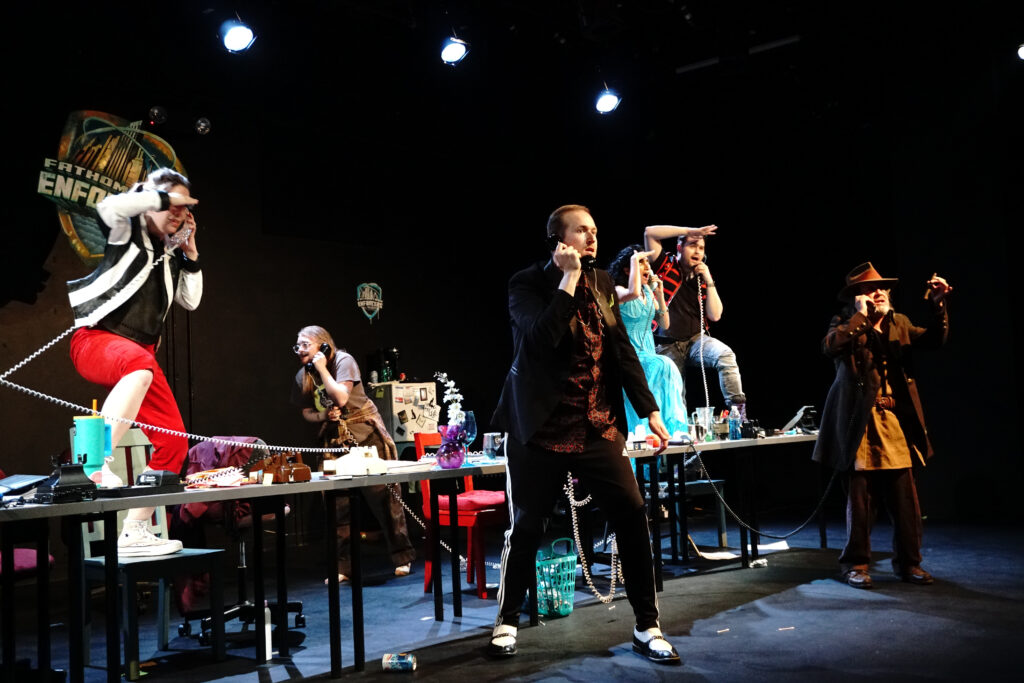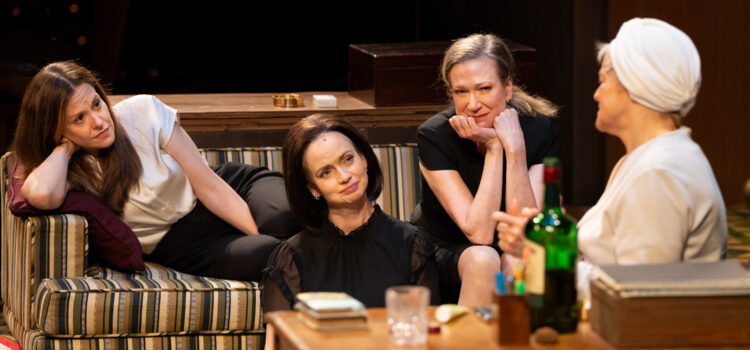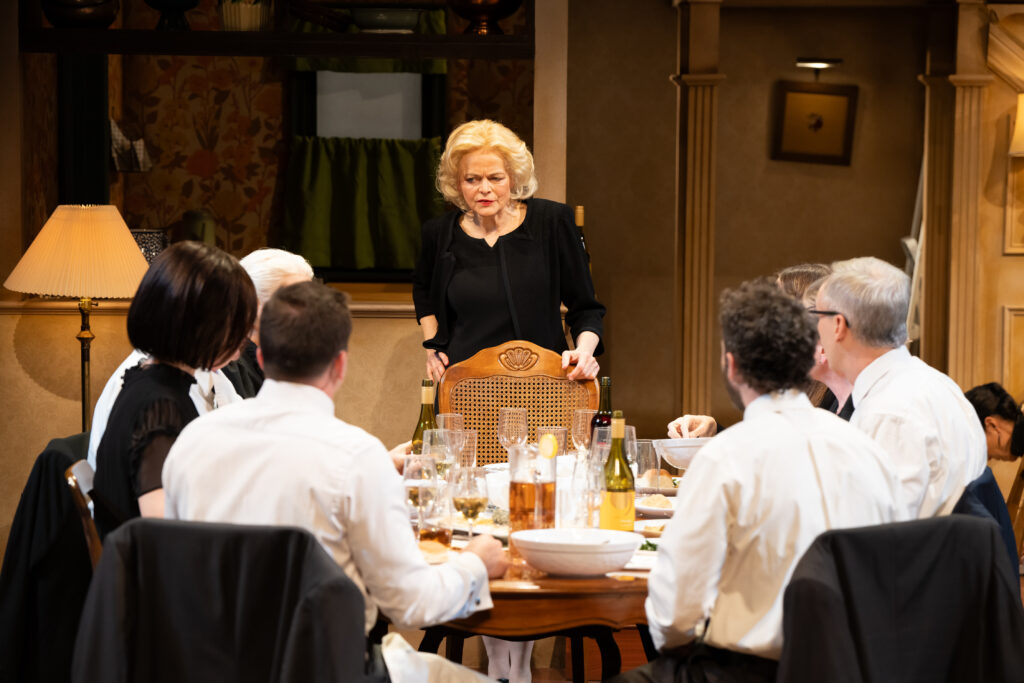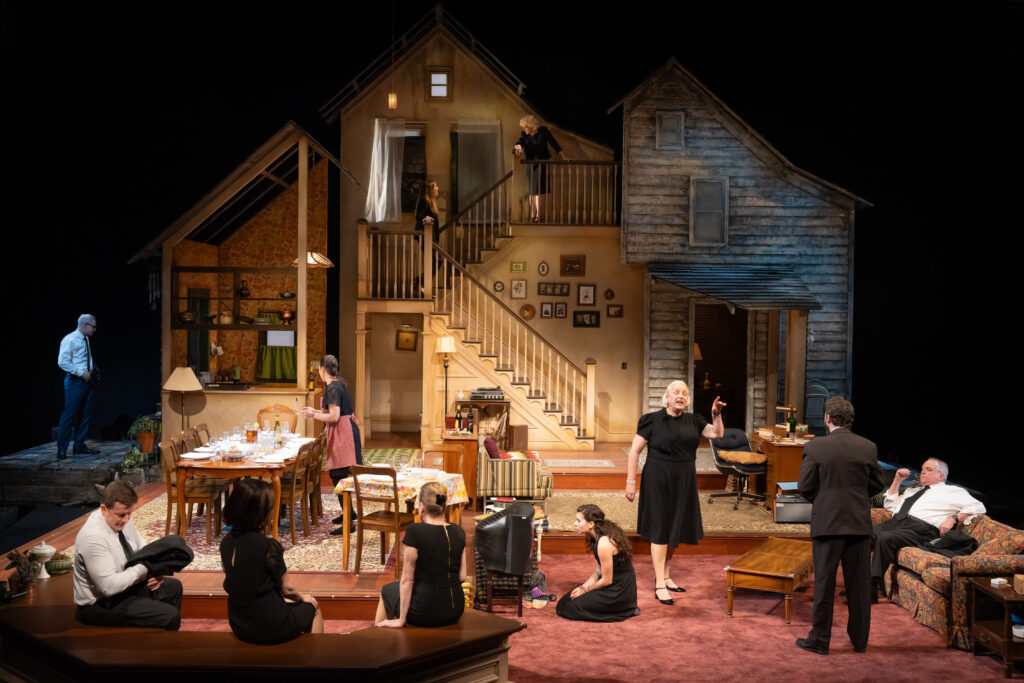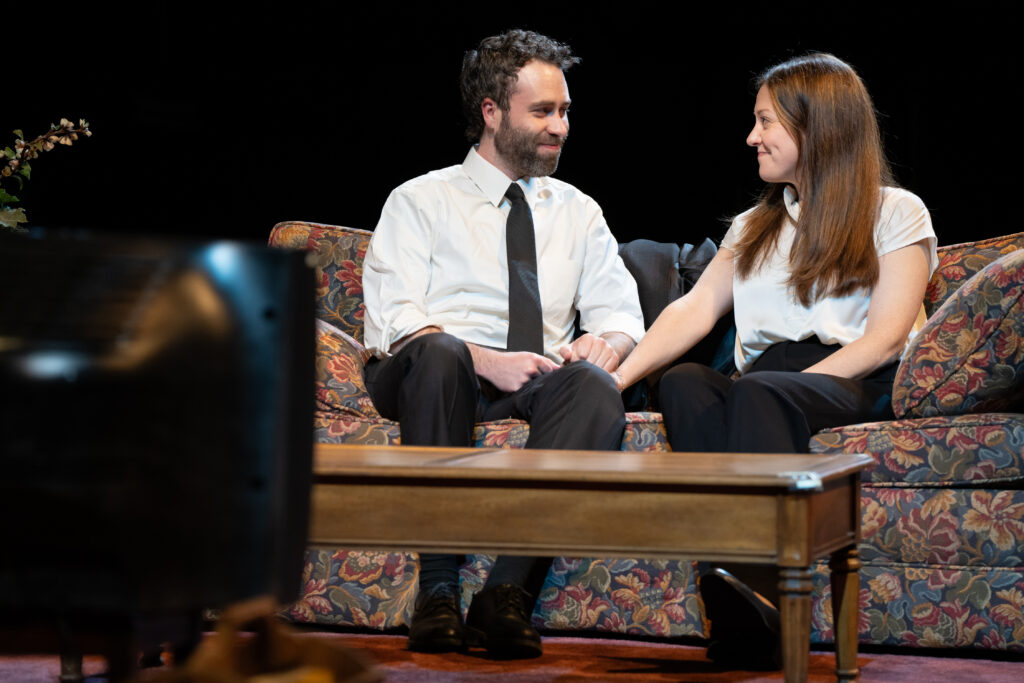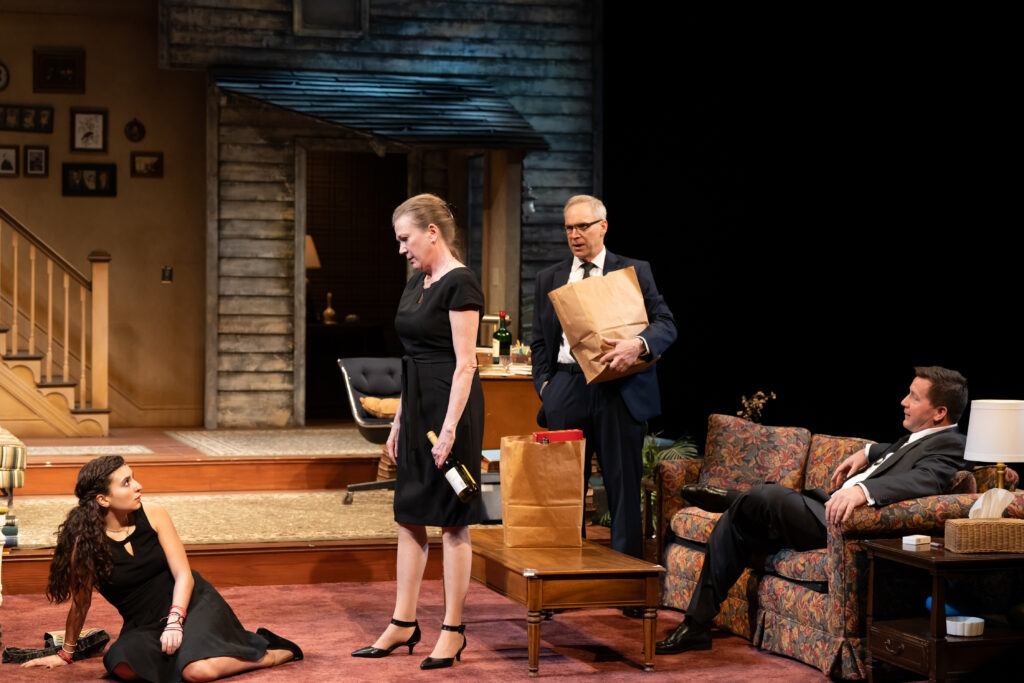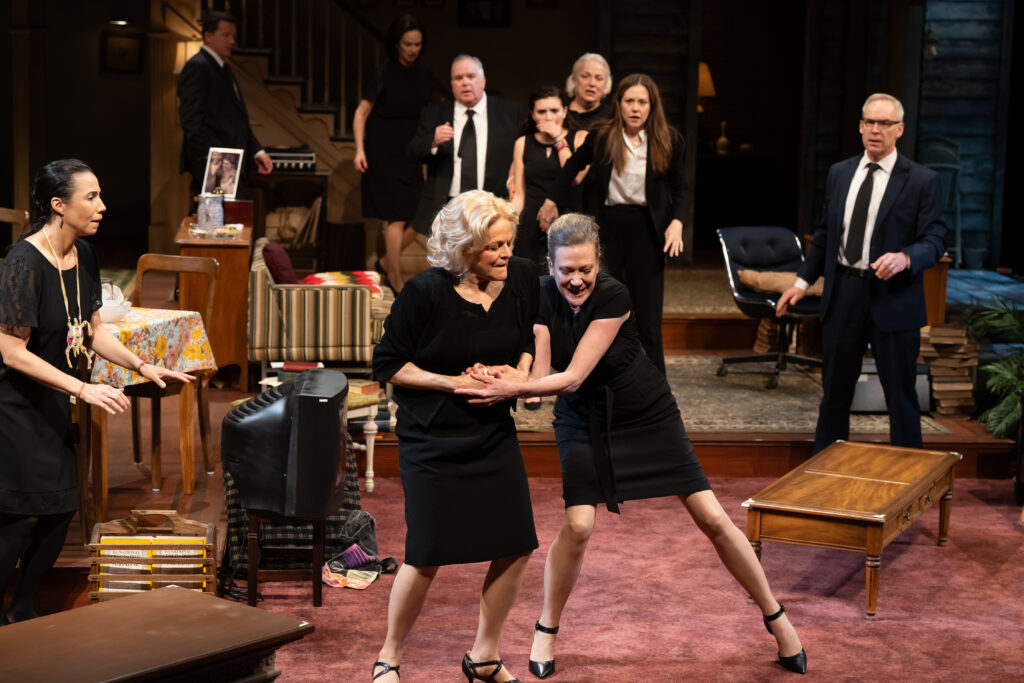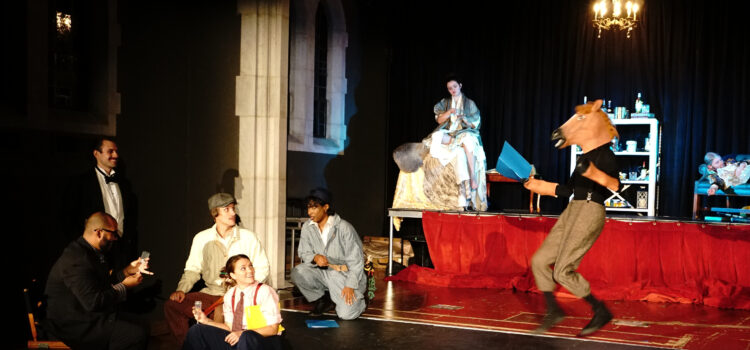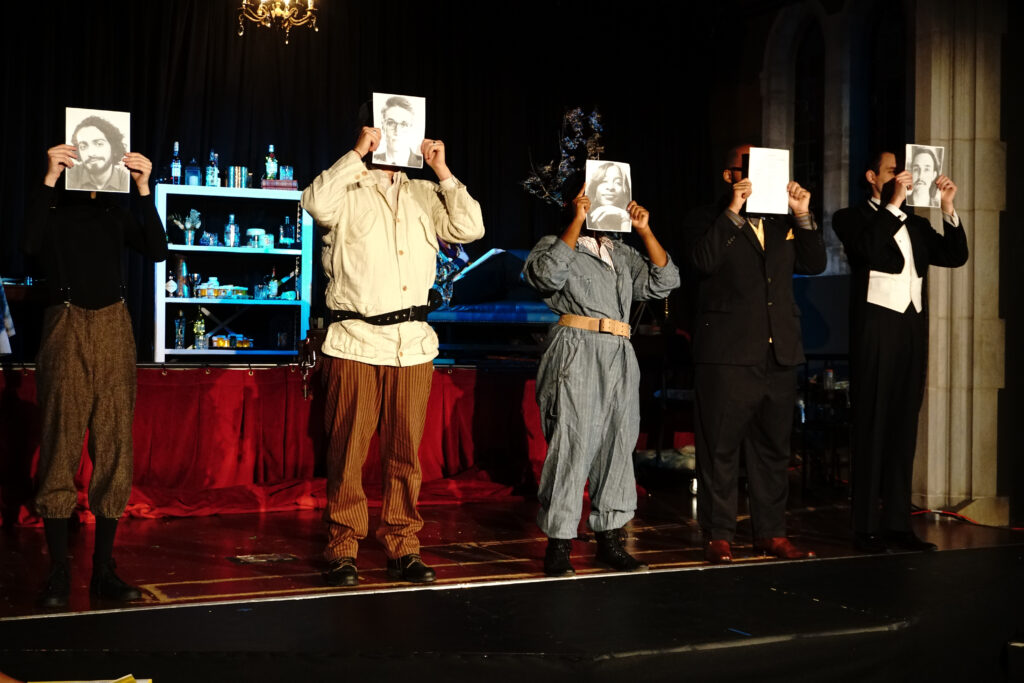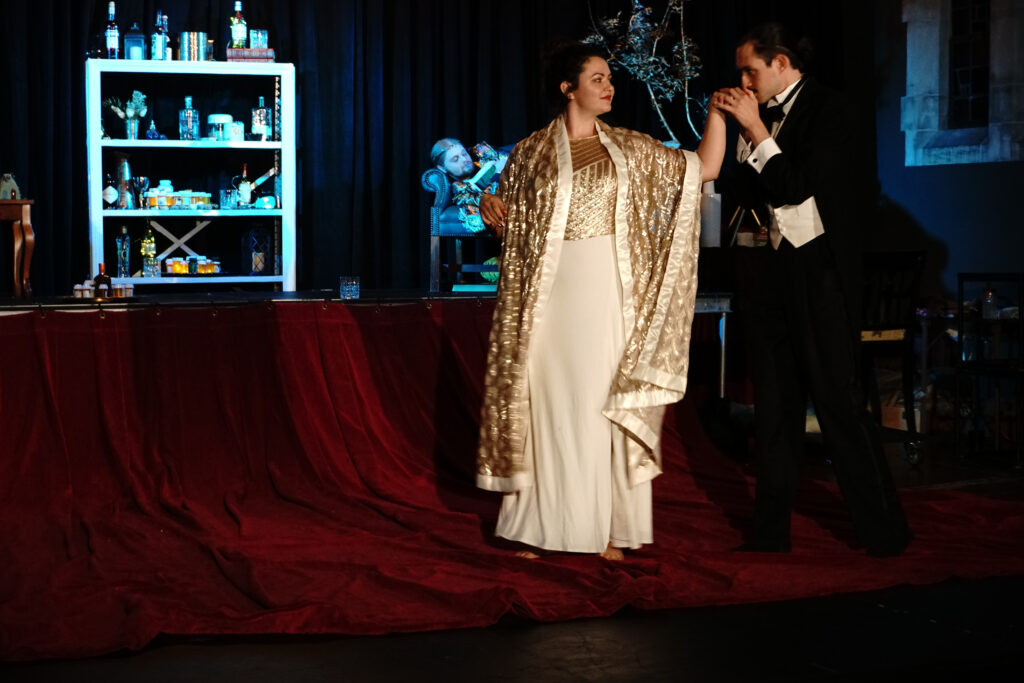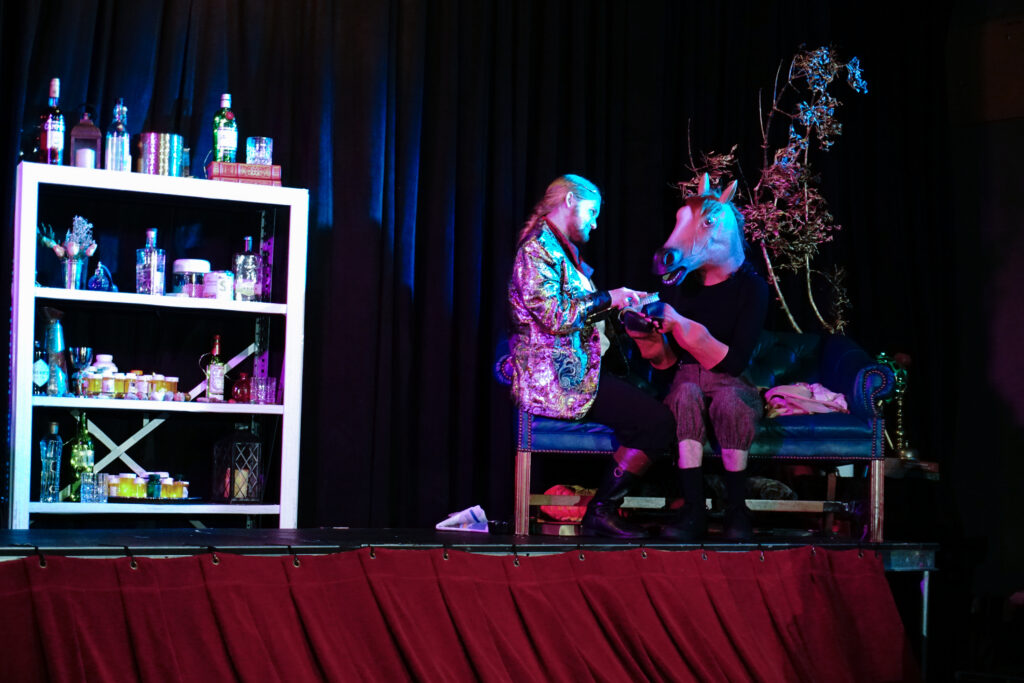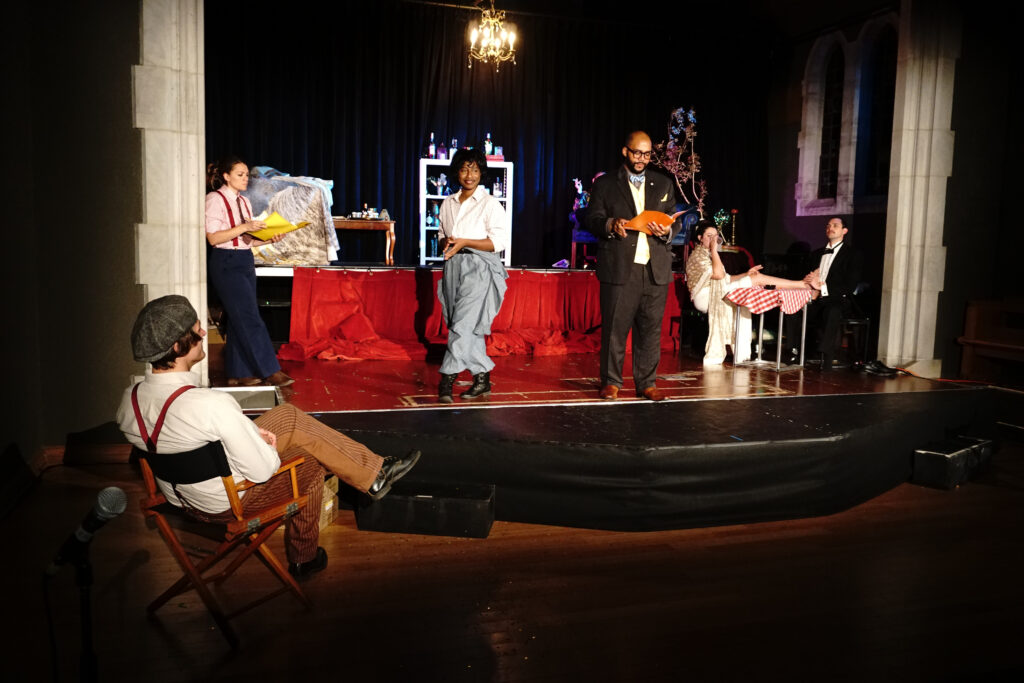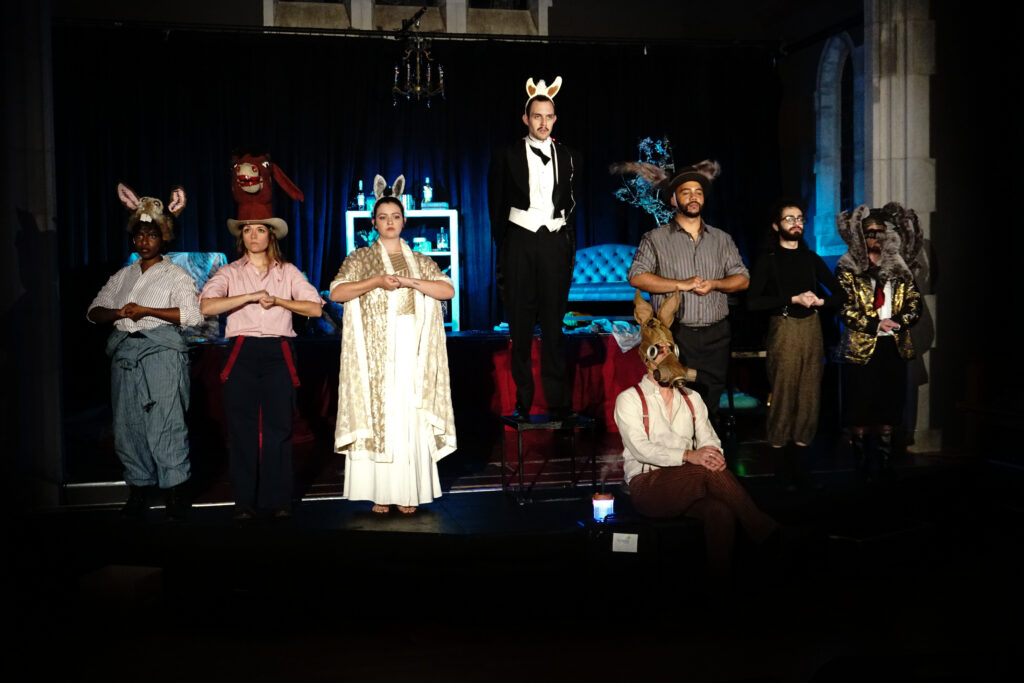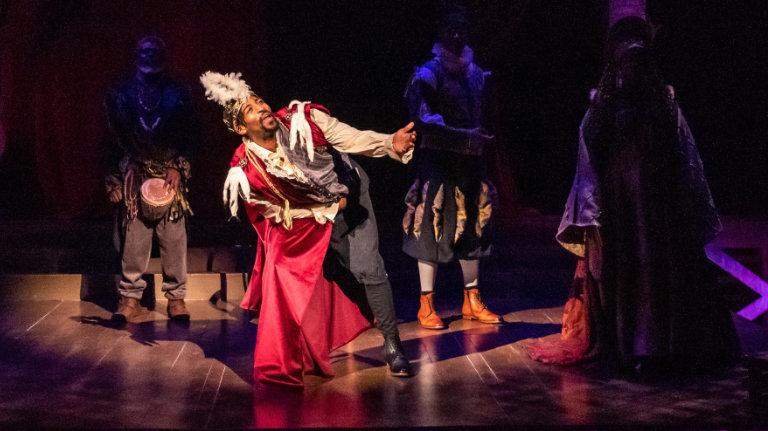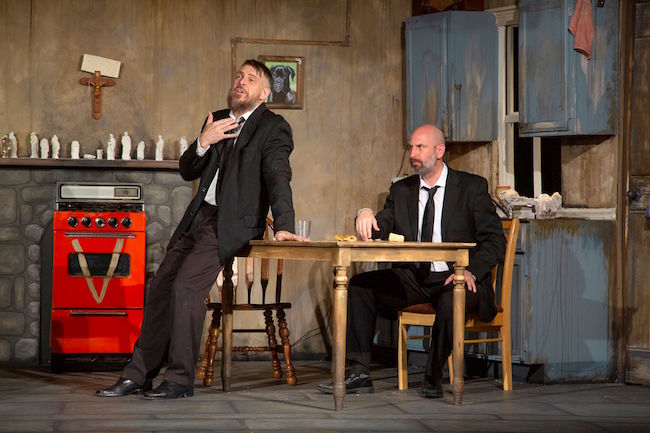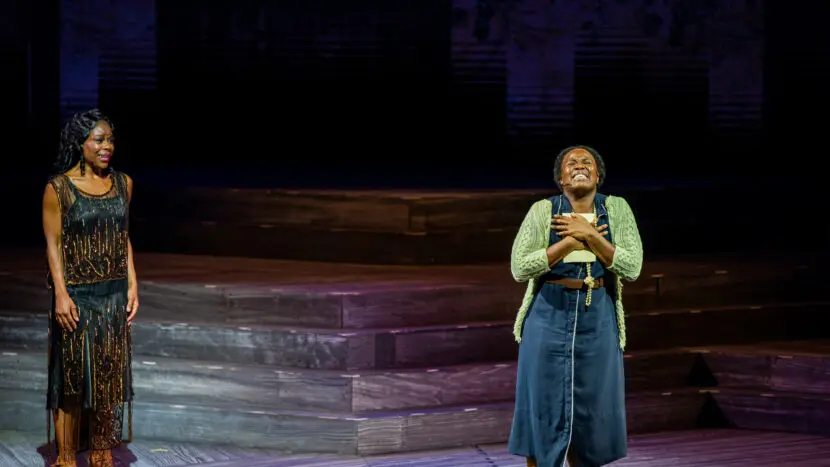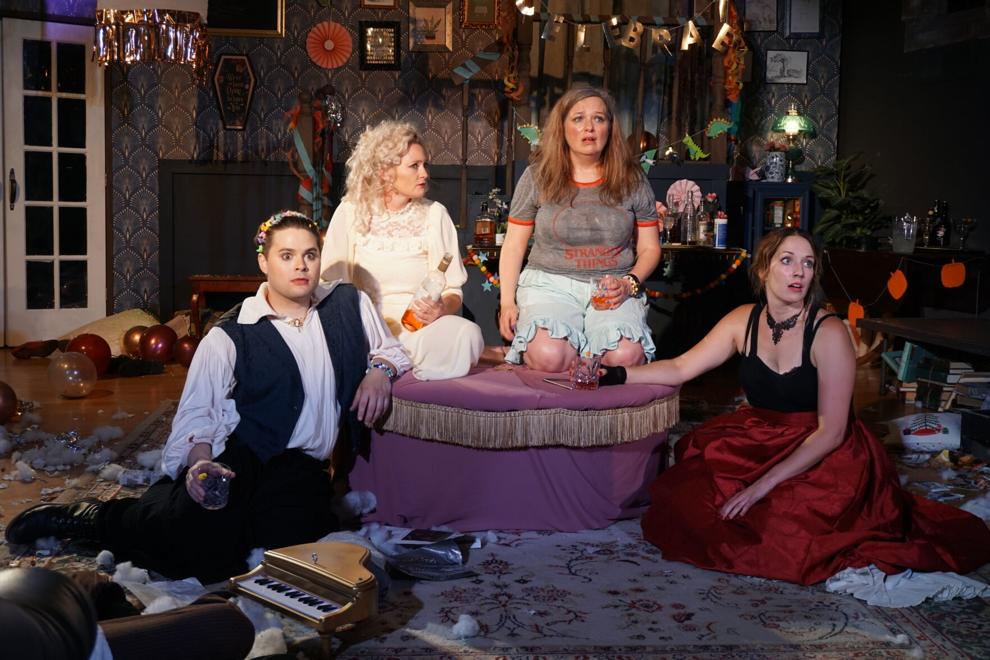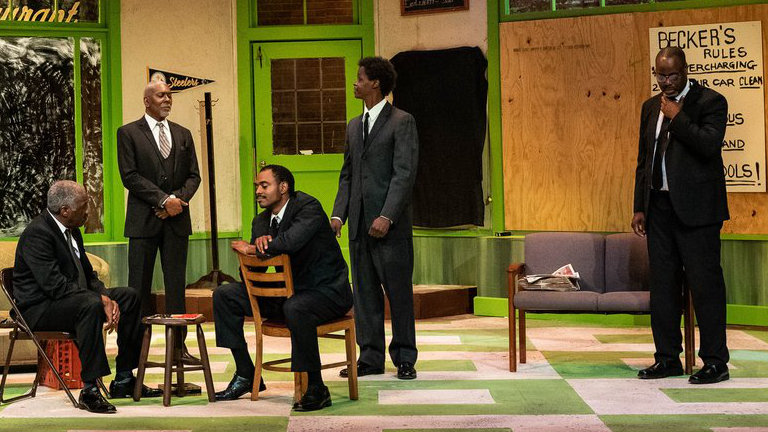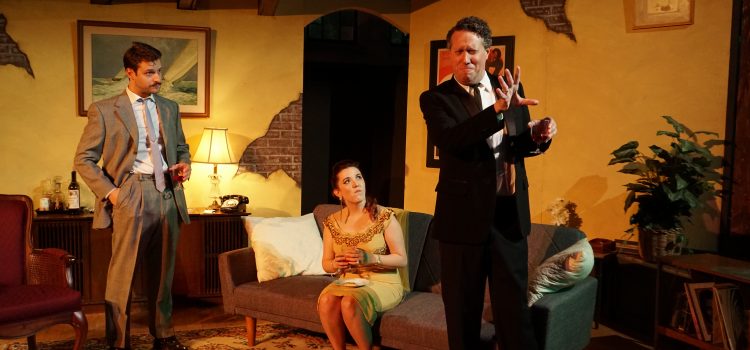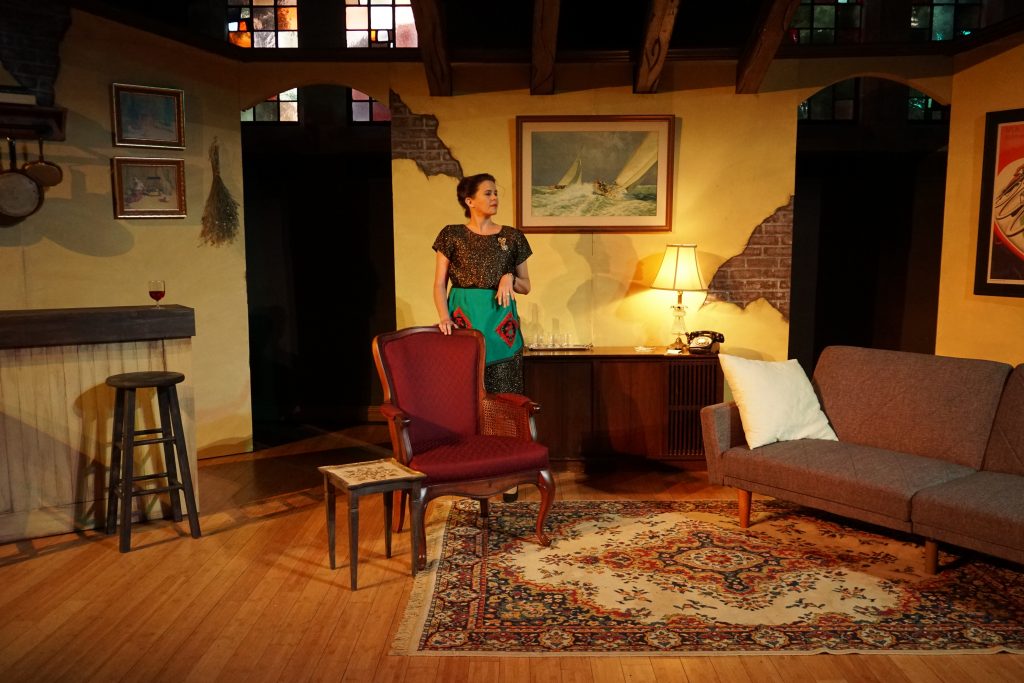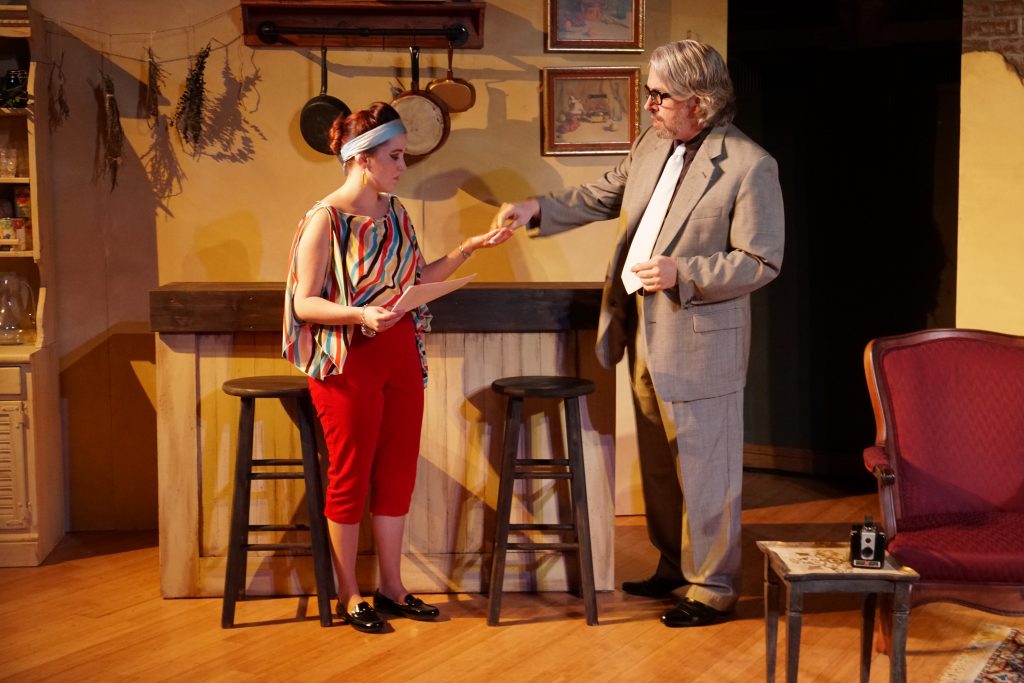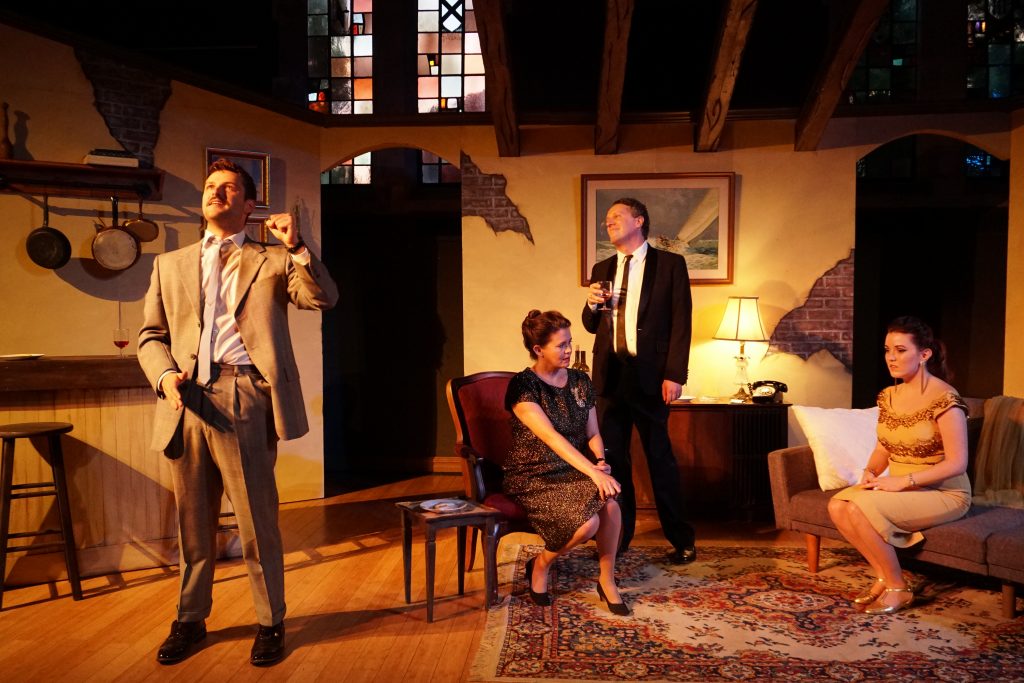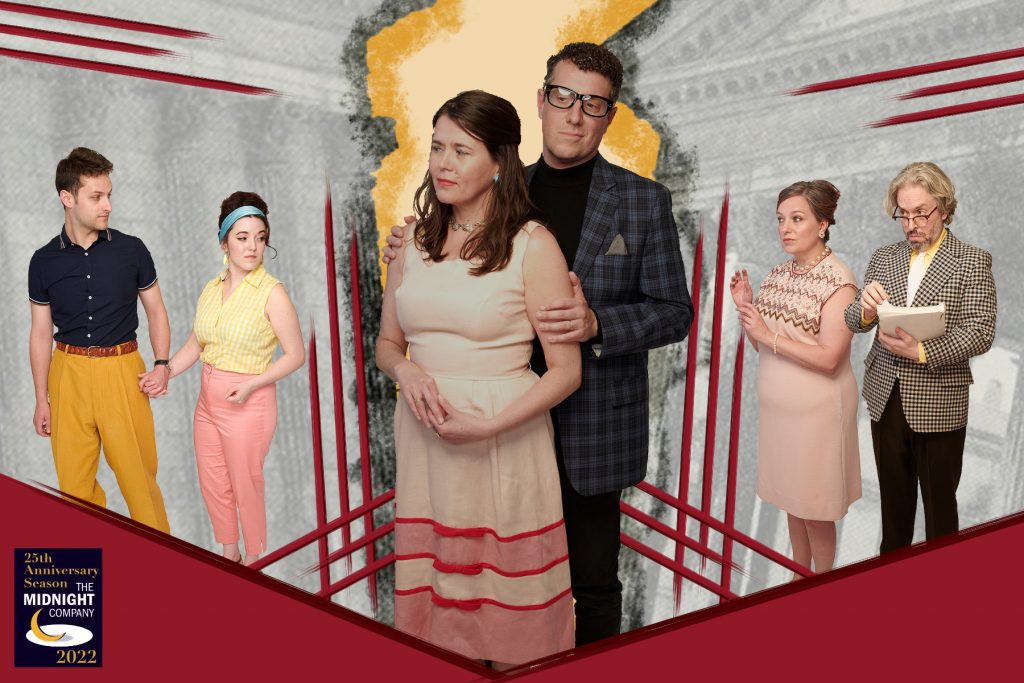By Lynn Venhaus
Hey, you guys!!! Do you remember growing up? Did you ever act out a fantasy adventure with your pals? Did you watch VHS tapes that you rented from the local Blockbuster Video?
Checking those boxes means you are the primo audience for SATE’s zany “Classic Adventure Movie,” which is an exuberant tribute to limitless childhood imaginations, a theatrical time-travel experience, and an homage to beloved characters who grew up in the Goon Docks.
With great affection, the company recreates the playful spirit of the Millennial touchstone, “The Goonies,” an iconic family film that premiered the same summer that “Back to the Future” did – in 1985.
Ever since this heartwarming tale of friendship came out on home entertainment, kids have been watching it over and over, repeat viewings a must. And any mother of Millennials knows it well (even if it’s been a while for me).
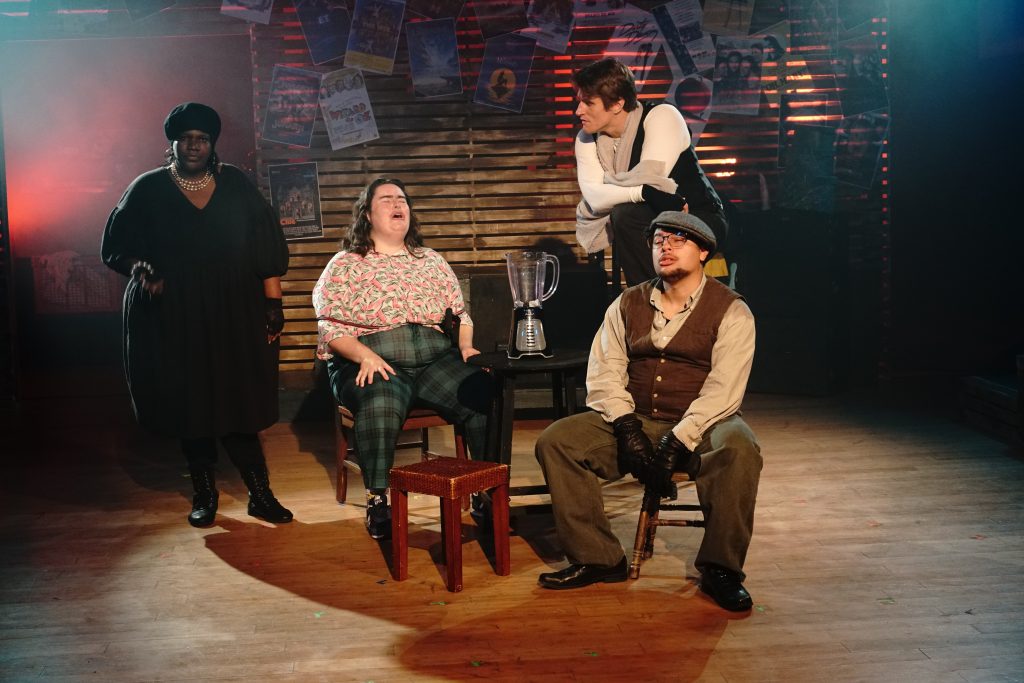
Get ready for that same warm glow of nostalgia that occurs when the children of the 1980s and 1990s remember how they fell in love with a merry band of misfits who dove into danger with the derring-do of a teenage Indiana Jones and the detective skills of Nancy Drew and The Hardy Boys.
And some of them, along with a few intrepid Gen X’s and Gen Z’s, are part of this fearless gang of “Never Say Die” performers who dash, dart, and dare to have fun as part of this fearless ensemble.
SATE is a regional theatre group renowned for its well-cast ensembles and strong collaborations, and this is another dandy example of the band getting back together and having the time of their lives.
Dynamic duo Rachel Tibbetts and Ellie Schwetye are the co-producers, with Rachel directing a fast-paced and funny show, where the comic lines land, the role-playing is spot-on, and the sentiment is endearing. Tibbetts injects the heart, Schwetye provides the soul as sound designer.
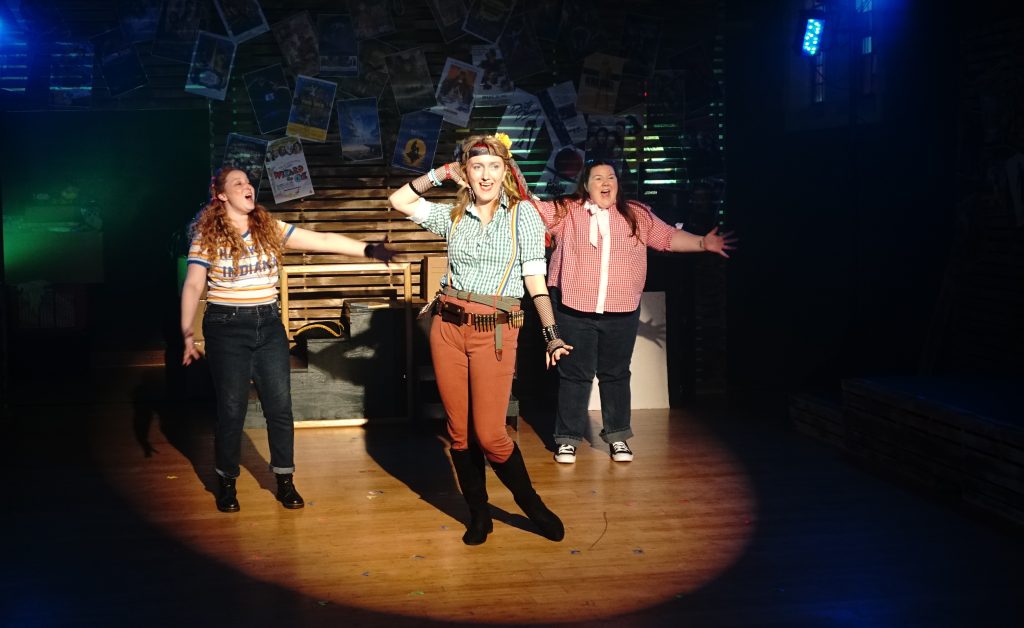
Ellie has compiled a greatest hits soundtrack to supply the audience with favorite movie themes and songs. Yes, you’ll hear John Williams’ unmistakable work among poppy needle drops, and it’s a terrific score to compliment this show.
This proud and loud troupe of 13 spryly navigate a makeshift playground of caves, secret passages, pirate ships, booby traps – and booty traps — and other escapades set up in the friendly, intimate confines of The Chapel (subbing for Astoria, Oregon).
It’s clear that the cast and crew have been sprinkled with Steven Spielberg’s magic pixie dust, and they’ve become kids again.
The movie plot is based on a story by Spielberg, who was inspired by Mark Twain’s “The Adventures of Tom Sawyer” when Tom and Becky Thatcher are lost in a cave.
Written by Chris Columbus (“Home Alone” and “Mrs. Doubtfire”), the script focuses on a group of buddies who must move from their working-class neighborhood when a developer forecloses on their families’ homes to build a golf course.
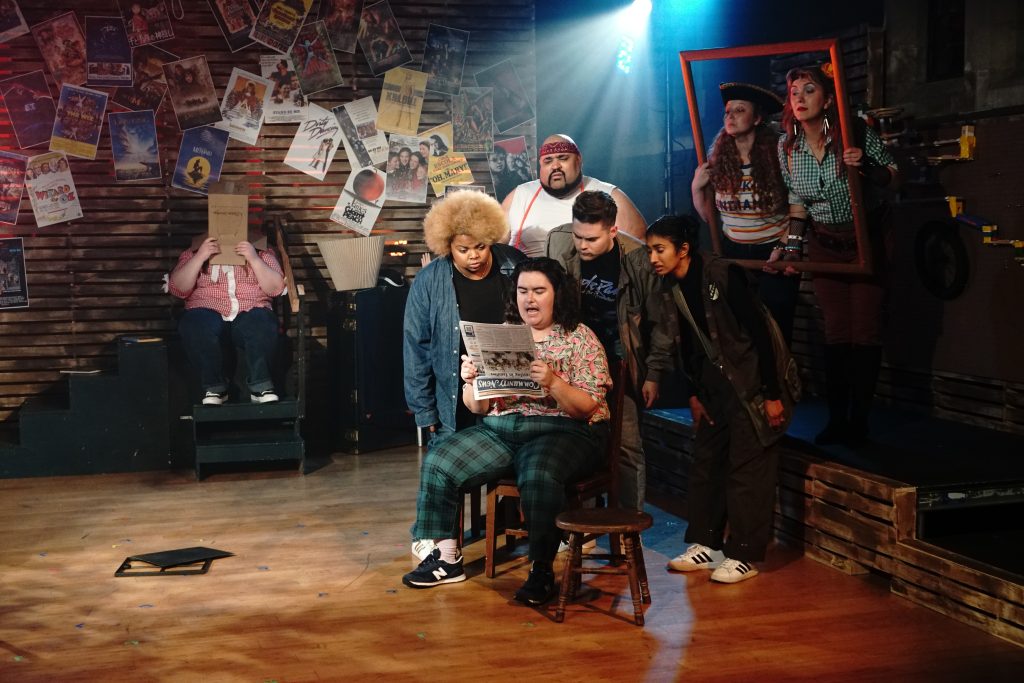
Director Richard Donner (“Superman” and “Superman II”) drew authentic performances from the youngsters, showcasing their natural chemistry and high energy. That’s embodied by spunky Ricki Franklin as Mikey, the eternal optimist.
Franklin is the driving force as the lovable, loyal pal played by Sean Astin. She wears the trademark jean jacket, too. Costume designer Liz Henning splendidly outfitted each character to have some specific items to mark each look from on screen, such as Keating’s mismatched pants and shirt wardrobe copying Chunk’s lack of sartorial splendor.
Luck may be on their side as they discover notorious pirate One-Eyed Willy’s treasure map that could lead to some valuable loot. They must follow clues. But they’re not the only ones searching – a family of crooks is hot on their trail.
Fierce LaWanda Jackson is funny as the ruthless crime boss Mama Fratelli whose knucklehead sons are more of a hindrance than a help – Anthony Kramer-Moser is Jake and Victor Mendez is Francis, and they demonstrate their slapstick prowess, for they are more Three Stooges than wise guys.
Joining Mikey on this wild adventure are chatterbox Mouth, aka Clark Devereaux, with goofball Cassidy Flynn in the Corey Feldman role; tech wizard Data, with versatile Ashwini Arora in the future Oscar winner Ke Huy Quan role; rapscallion Chunk, with inventive Keating in the mischievous Jeff Cohen role. “I love the dark! But I hate nature!” they say.
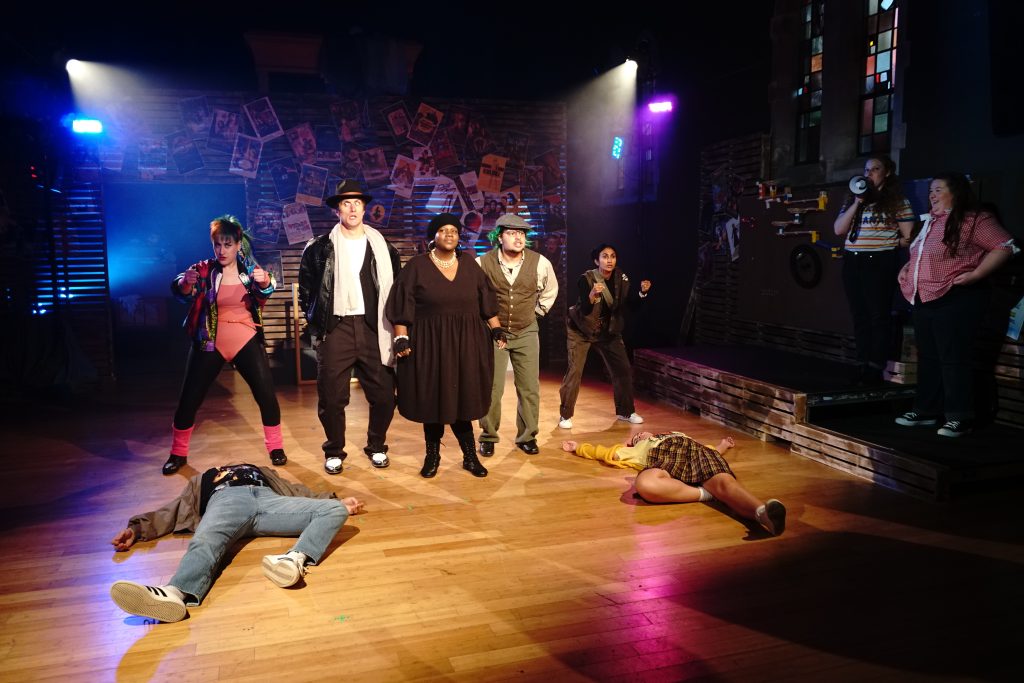
The pals team up with high school jock Brand (Mikey’s older brother Brandon), with Carl Overly Jr. sporting a red bandana and gray shirt as the tough protector played by Josh Brolin.
Helpful is perky Andy, a popular cheerleader who has a crush on Brand, and is played by multi-faceted Hailey Medrano in the Kerri Green role. Her feisty best friend Stef is vibrant Marcy Wiegert in the resourceful role played by Martha Plimpton in the movie.
The actors added recognizable touches in their personal development of these iconic parts, and as anticipated, Keating goes to town in the “Truffle Shuffle.”
Two narrators are Katie Donnelly as Barb and Courtney Bailey as Lizzie, and they fill a variety of needs, including playing bridge trolls.
One of the sweetest touches was having some of the actors talk about their favorite movie from their youth in a heartfelt monologue, why it moved them and why the mattered. Jackson talked about “The Wiz,” Flynn “Pokemon,” Ferrari “Under the Tuscan Sun,” Keating “E.T. the Extra-Terrestrial” and Wiegert “Labyrinth.”
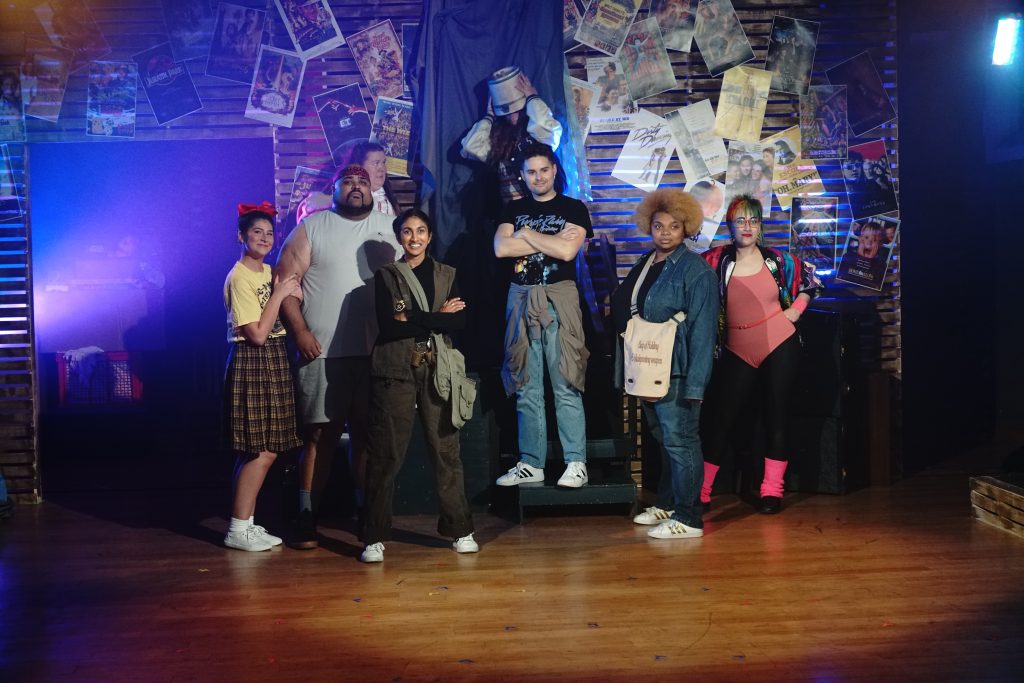
One of the most inspired additions is Frankie Ferrari as Cyndi Lauper, the pop singer who had a cameo in the movie. She penned the title song “The Goonies R Good Enough” included on the soundtrack.
The music video was in frequent rotation on MTV, so she is part of its legend. The playwright found clever ways to use Cyndi, and Ferrari is all in, singing, dancing and replicating the pop star’s thick Brooklyn-Queens combo accent.
The set design by Erik Kuhn has some sight gags, movie posters, and delightful reminiscences of childhood days gone by. Kuhn also served as technical director. He had to be handy and resourceful, coming up with clever substitutions for grand-scale images. Wearing a third hat, he served as fight director, too.
Katherine Leemon did a terrific job finding props that were integral to each character. Denisse Chavez expertly took care of the lighting design.
The play was written by Keating, after being conceived by Tibbetts, Flynn and Keating at a sleep-over birthday party where they watched “The Goonies.” They have included the most memorable parts of the movie, and one role is given to an audience member.
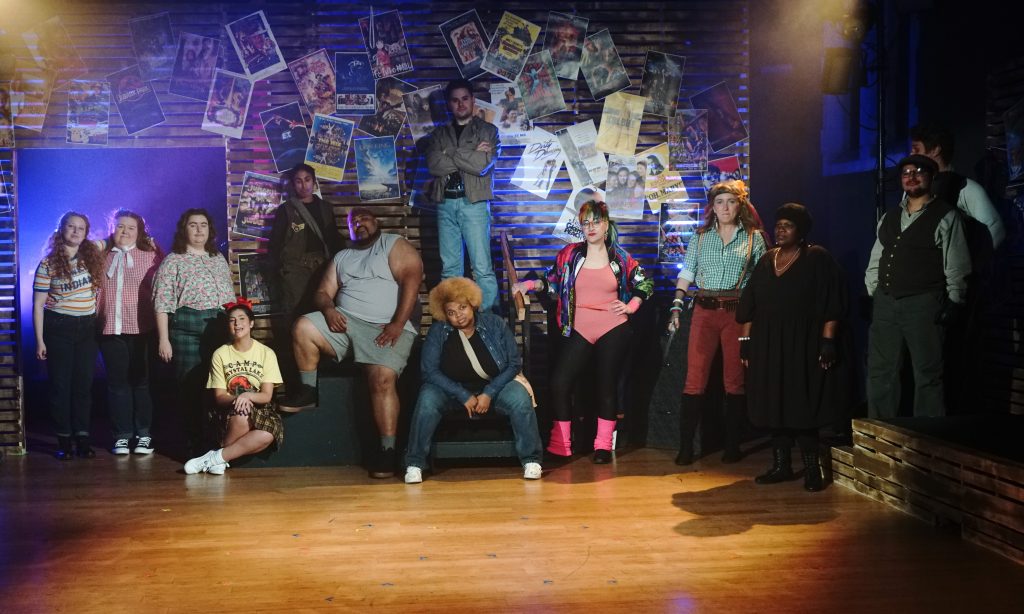
This is the group’s second work in a hopeful trilogy, after “Classic Mystery Game” in 2019, and uses story elements from their “First Impressions” on the Jane Austen novel “Pride and Prejudice” in 2017.
“Classic Adventure Movie” is elevated by SATE’s trademark camaraderie. The fleet-footed and expressive cast deliver one-liners and recognizable quotes from the movie in such a fun way that they must have put extra oomph into rehearsing the play to get the timing just so.
A primer on “The Goonies” isn’t a pre-requisite, but helpful. No matter what, you’ll be swept away by the youthful enthusiasm as they outwit, outplay, outlast – and outsnark — the villains.
SATE presents the world premiere of “Classic Adventure Movie, or Never Say Die,” Sept. 11 through Sept. 27, with shows Thursday through Saturday at 7 p.m. at The Chapel, 6238 Alexander Drive. For more information: satestl.org.

Lynn (Zipfel) Venhaus has had a continuous byline in St. Louis metro region publications since 1978. She writes features and news for Belleville News-Democrat and contributes to St. Louis magazine and other publications.
She is a Rotten Tomatoes-approved film critic, currently reviews films for Webster-Kirkwood Times and KTRS Radio, covers entertainment for PopLifeSTL.com and co-hosts podcast PopLifeSTL.com…Presents.
She is a member of Critics Choice Association, where she serves on the women’s and marketing committees; Alliance of Women Film Journalists; and on the board of the St. Louis Film Critics Association. She is a founding and board member of the St. Louis Theater Circle.
She is retired from teaching journalism/media as an adjunct college instructor.

